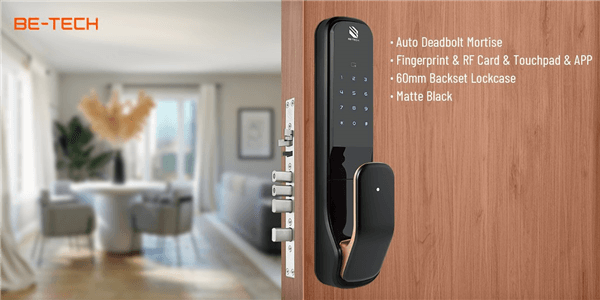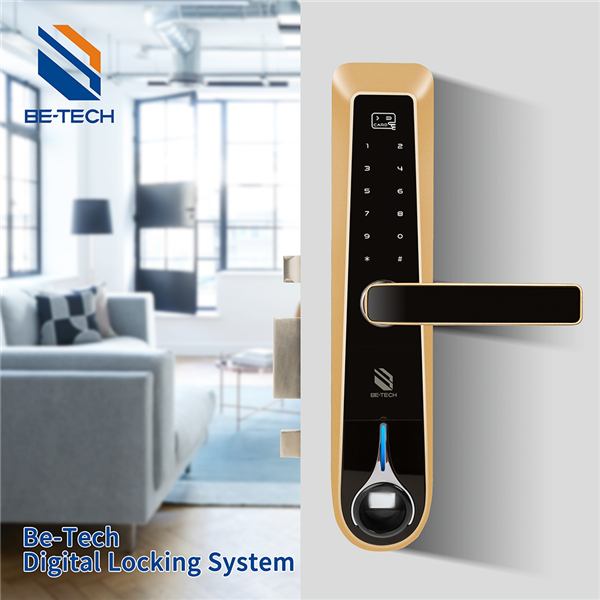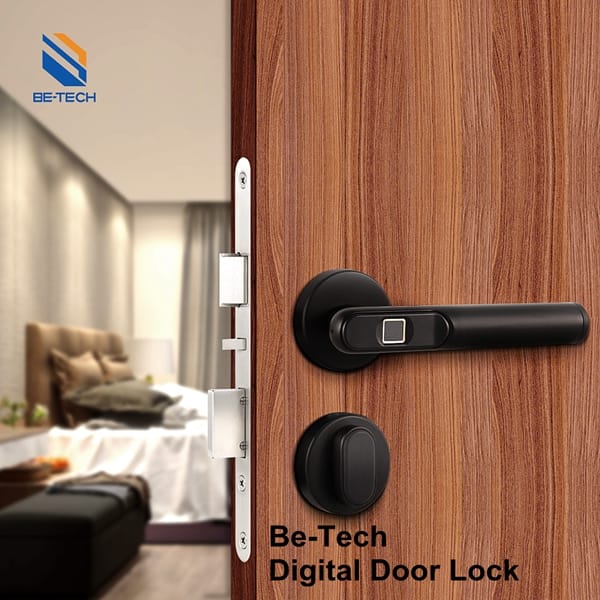In a world increasingly driven by technology, the demand for smart home solutions is on the rise, and smart locks are at the forefront of this revolution. Offering enhanced security, convenience, and integration with smart home ecosystems, smart locks are rapidly replacing traditional locks in homes, businesses, and hotels. For distributors looking to capitalize on this booming market, selecting the right smart lock manufacturer is paramount to success. This comprehensive guide will explore the key factors to consider when evaluating top smart lock manufacturers for distribution, providing insights to help you make informed decisions and maximize your business potential.
Key Factors to Consider
When choosing a smart lock manufacturer for distribution, it is essential to look beyond the product itself and consider a range of factors that impact the manufacturer’s reliability, product quality, and long-term viability.
1. Product Range and Innovation
A diverse product range is crucial for meeting the varying needs of your customer base. Look for manufacturers offering:
- Different types of smart locks: This includes keyless entry door locks, digital cylindrical latch locks, electronic cabinet locks, and smart deadbolt door locks.
- Variety of access methods: Options like smartphone unlocking, PIN codes, RFID cards, fingerprint scanning, and mechanical key overrides cater to different user preferences and security requirements.
- Integration with smart home ecosystems: Compatibility with popular platforms like Amazon Alexa, Google Assistant, and Apple HomeKit enhances the value proposition for tech-savvy consumers.
- Commitment to innovation: Look for manufacturers investing in research and development to stay ahead of the curve and introduce cutting-edge features that address emerging security trends and consumer demands.
Be-Tech, for example, offers a wide array of smart locks, including models with multiple access options, advanced security features like scramble codes and double lock switches, and compatibility with smart home systems.
2. Quality and Durability
The reputation of your distribution business hinges on the quality and durability of the products you offer.
- Material and construction: Smart locks should be made from high-quality materials like SUS 304 stainless steel or aluminum alloy to ensure strength, durability, and resistance to wear and tear.
- Rigorous testing: Look for manufacturers who subject their products to rigorous testing, exceeding industry standards like the BHMA standard cycle tests and UL 3-hour fire tests. This demonstrates a commitment to delivering reliable and long-lasting products.
- Warranties and guarantees: Strong warranties demonstrate the manufacturer’s confidence in their product quality and provide peace of mind for distributors and customers.
Be-Tech emphasizes quality and durability, subjecting its smart locks to extensive life tests and using robust materials to ensure their products can withstand various conditions.
3. Security Features
Security is the primary function of any lock, and smart locks should offer a higher level of protection than traditional locks.
- Advanced encryption: Encryption protects data transmitted between the lock and authorized devices, preventing unauthorized access.
- Anti-tamper mechanisms: Features that deter physical attacks and hacking attempts, such as anti-drill plates, reinforced strike plates, and tamper alarms.
- Two-factor authentication: An extra layer of security that requires users to provide two forms of identification, such as a password and a fingerprint, to gain access.
- Security certifications: Compliance with industry standards like CE, RoHS, and UL demonstrates a commitment to meeting or exceeding established security benchmarks.
Be-Tech addresses security concerns by incorporating robust encryption protocols, anti-tamper features, and passing multiple certifications, demonstrating its commitment to providing secure and trustworthy products.
4. Manufacturing Capabilities and Scalability
For distributors, partnering with a manufacturer with robust manufacturing capabilities is vital to ensure a consistent supply of products to meet demand.
- Production capacity: Assess the manufacturer’s production volume and capacity to meet your distribution needs, especially for bulk orders.
- Lead times: Efficient production processes and short lead times are essential for fulfilling orders promptly and maintaining customer satisfaction.
- Quality control: Strong quality control measures throughout the manufacturing process are crucial for ensuring consistent product quality and minimizing defects.
- Scalability: The manufacturer should be able to scale its production to accommodate your future growth and expanding distribution network.
Be-Tech boasts integrated production lines and precise manufacturing equipment, enabling them to handle high-volume orders and meet demanding lead times while maintaining strict quality control.
5. Support and Customer Service
Excellent customer service is crucial for building strong relationships with distributors.
- Responsiveness: Prompt and helpful responses to inquiries and requests for support demonstrate a commitment to customer satisfaction.
- Technical expertise: Access to knowledgeable technical support is essential for resolving any technical issues or challenges that arise during installation or use.
- Training and resources: Comprehensive training programs and readily available resources equip distributors with the knowledge and tools to effectively sell and support smart lock products.
Be-Tech prioritizes customer service, providing fast responses to inquiries and professional assistance throughout the sampling, testing, and installation processes.
6. Pricing and Profitability
Competitive pricing is essential for maximizing profitability and gaining a competitive edge in the market. However, price should not be the sole determining factor. Strive for a balance between price and value.
- Wholesale pricing: Negotiate favorable wholesale pricing with the manufacturer to ensure healthy profit margins.
- Volume discounts: Volume-based discounts can further improve profitability, especially for distributors with high sales volumes.
- Payment terms: Flexible payment terms can improve cash flow and make it easier to manage inventory.
Be-Tech’s commitment to producing high-quality products at competitive prices positions them as an attractive option for distributors seeking profitability.
7. Brand Reputation and Market Presence
A manufacturer with a strong brand reputation and established market presence can benefit distributors by:
- Increased consumer trust: A reputable brand instills confidence in consumers, making it easier to sell products.
- Brand recognition: Established brands benefit from greater brand recognition, simplifying marketing efforts.
- Marketing support: Reputable manufacturers often provide marketing materials and support to assist distributors in promoting their products.
Be-Tech has a long-standing reputation in the smart lock industry, with over 30 years of experience and a focus on developing innovative products that meet evolving customer needs.
A Closer Look: Be-Tech’s Smart Lock Solutions in Action
Be-Tech showcases its expertise and ability to meet diverse client needs through a series of case studies highlighting successful installations of its smart lock systems. Let’s take a closer look at these examples:
- Ramada ZAD Al Tayser Hotel: This 178-room hotel in Saudi Arabia chose Be-Tech’s BASE RFID TYPICAL electronic hotel locks to prioritize both security and a positive guest experience. These locks offer:
- Accessibility for all: They are ADA compliant, ensuring ease of use for guests with disabilities.
- Enhanced security: Features include a panic release mechanism for emergencies, anti-hacker technology to safeguard against unauthorized access, and robust construction using high-quality materials like stainless steel.
- Seamless integration: The locks are compatible with various Property Management Systems (PMS) and RFID key cards, streamlining operations and enhancing guest convenience.
- Wyndham Days Suites Bengaluru: This Indian business hotel opted for Be-Tech’s VISUAL series hotel room electronic door locks to create a convenient and guest-focused environment. These locks stand out for their:
- Stylish design: The VISUAL series blends aesthetics and functionality, while also being ADA compliant for universal accessibility.
- Advanced security measures: They utilize RFID technology, employ a sealed contactless module for enhanced protection, and feature a high-security mortise lock case with a 3-point stainless steel latch construction.
- Future-proof technology: The locks incorporate advanced 13.56MHz technology and a re-programmable FLASH RAM, allowing for flexibility and future upgrades. They also have 11 free sectors for potential integration with all-in-one card systems.
- WYNDHAM THANH THUY: This five-star spa resort in Vietnam, managed by Wyndham Hotels & Resorts, required a commercial door lock system that balanced high security, style, and convenience. Be-Tech recommended the SHADOW II RFID door lock, which offers:
- Robust security: This lock boasts sturdy construction, anti-hacker technology, and compliance with DIN standards for a reliable and secure solution.
- Elegant aesthetic: The SHADOW II series features a sleek, contemporary design available in both silver and matte black finishes, complementing the resort’s sophisticated ambiance.
- User-friendly experience: The locks are ADA compliant, have a panic release function for emergencies, and are compatible with the BIS Hotel software platform, simplifying management for resort staff.
These case studies demonstrate Be-Tech’s capability to tailor its solutions to the specific needs of different clients, whether they are hotels, business hotels, or spa resorts. Be-Tech’s diverse product line, encompassing a wide range of features and technologies, underscores its versatility and reliability as a smart lock manufacturer. This makes Be-Tech a valuable partner for distributors looking to cater to a diverse customer base with varying security and accessibility needs.
Conclusion
Selecting the right smart lock manufacturer for distribution is a critical decision that can significantly impact your business success. By carefully evaluating manufacturers based on the factors outlined above, you can identify partners who offer high-quality products, reliable support, and a shared vision for growth.
Be-Tech, with its extensive product range, commitment to innovation, focus on quality and security, strong manufacturing capabilities, and excellent customer service, emerges as a strong contender for distributors seeking to capitalize on the booming smart lock market.
Ready to explore the potential of Be-Tech’s smart lock solutions for your distribution business? Contact us today for a consultation and discover how we can help you unlock new opportunities for growth.








